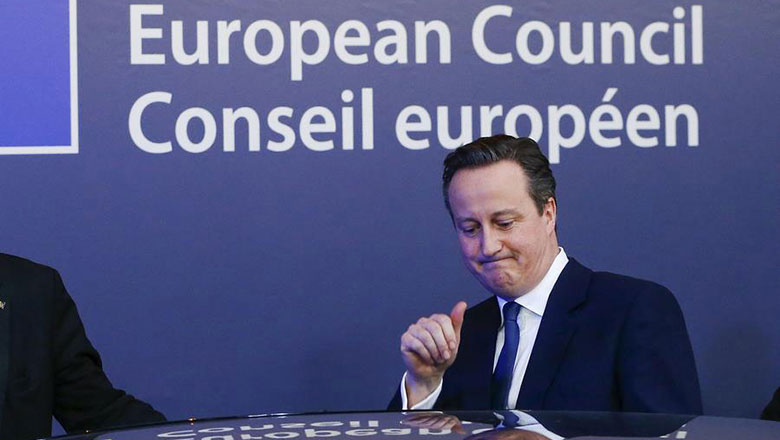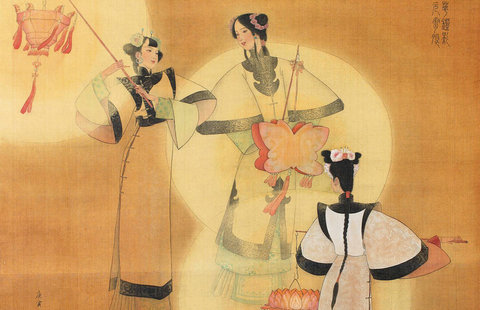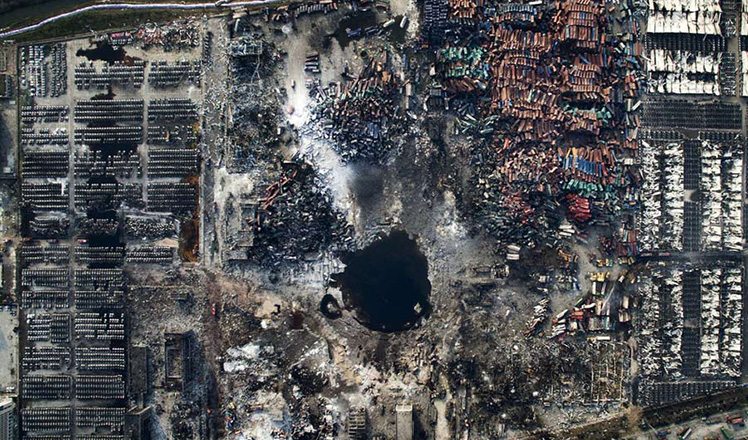Festivals help lighten mood in a slowing economy
Updated: 2016-02-23 08:04
By Xinhua(China Daily)
|
||||||||
With great verve and passion, Chinese people celebrated Lantern Festival in traditional and trendy ways, despite the gloom of smog and the economic slowdown.
The festival, which fell on Monday this year, marks the end of Lunar New Year celebrations. It is the day when people see themselves starting a new life in a new year.
China's cities were festooned with red lanterns on gates, along the streets and in most public places. Folk dances were staged in streets and squares, with lantern shows and fireworks putting a brilliant, dazzling final touch on the celebration.
Lantern Festival is an important family day, but unlike Spring Festival, when people stay home for dinners, it's a day for going out.
The festival dates to the Western Han Dynasty (206 BC-AD 24).
The annual Taiwan Lantern Exhibition on Monday had a 26-meter figure of the Monkey King as its center piece matching the Year of the Monkey in the Chinese zodiac.
Lantern maker Zhu Lei, 88, runs a shop near Yu Garden in Shanghai. He made more than 500 lanterns by hand leading up to the festival.
"I don't do it for money. I want to preserve what has been passed on in my family for generations," he said.
It's also a popular day for people to visit temples. Xi Nan went to Yonghegong Lama Temple in Beijing in the morning to pray for a second child this year.
There is a saying in China that "the whole year's work depends on a good start in spring". Many view Lantern Festival as a chance to make such a start.
Another festival - Munao Festival - the biggest festival for the Jingpo ethnic group, is a time for people to drive out evil spirits, celebrate the harvest and pray for good harvests in the future. The celebration is often held near the Lantern Festival and features "Heaven's Dance", in which participants are armed with long knives.
The festival normally comes on the fifteenth day of the first lunar month and lasts two or three days. It has been added to the list of national intangible cultural heritage.
With the theme "Unity and harmony, opening-up and development", this year's festival will further enhance the reputation of traditional culture while promoting tourism and industry, according to Wang Junqiang, a senior official in Dehong Dai-Jingpo autonomous prefecture, Yunnan province.
Li Yingqing in Kunming contributed to this story.
(China Daily 02/23/2016 page5)

 The world in photos: Feb 15 - 21
The world in photos: Feb 15 - 21
 China Daily weekly pictures: Feb 13-19
China Daily weekly pictures: Feb 13-19
 Lantern Festival in the Chinese paintings
Lantern Festival in the Chinese paintings
 Meet Melanie, the real-life mermaid
Meet Melanie, the real-life mermaid
 Samsung unveils new products at mobile conference in Spain
Samsung unveils new products at mobile conference in Spain
 88th Academy Awards Governors Ball Press Preview
88th Academy Awards Governors Ball Press Preview
 Chinese photographers' work shines in major photo contest
Chinese photographers' work shines in major photo contest
 Egg carving master challenges Guinness World Record
Egg carving master challenges Guinness World Record
Most Viewed
Editor's Picks

|

|

|

|

|

|
Today's Top News
What ends Jeb Bush's White House hopes
Investigation for Nicolas's campaign
Will US-ASEAN meeting be good for region?
Accentuate the positive in Sino-US relations
Dangerous games on peninsula will have no winner
National Art Museum showing 400 puppets in new exhibition
Finest Chinese porcelains expected to fetch over $28 million
Monkey portraits by Chinese ink painting masters
US Weekly

|

|







